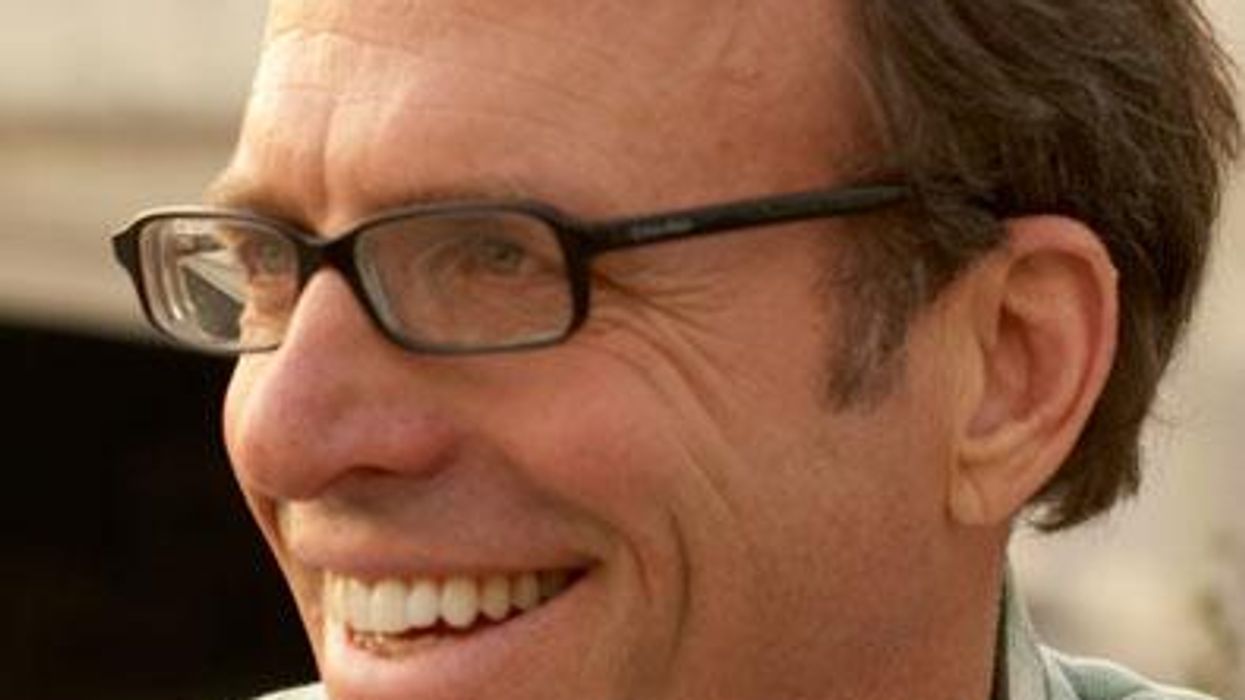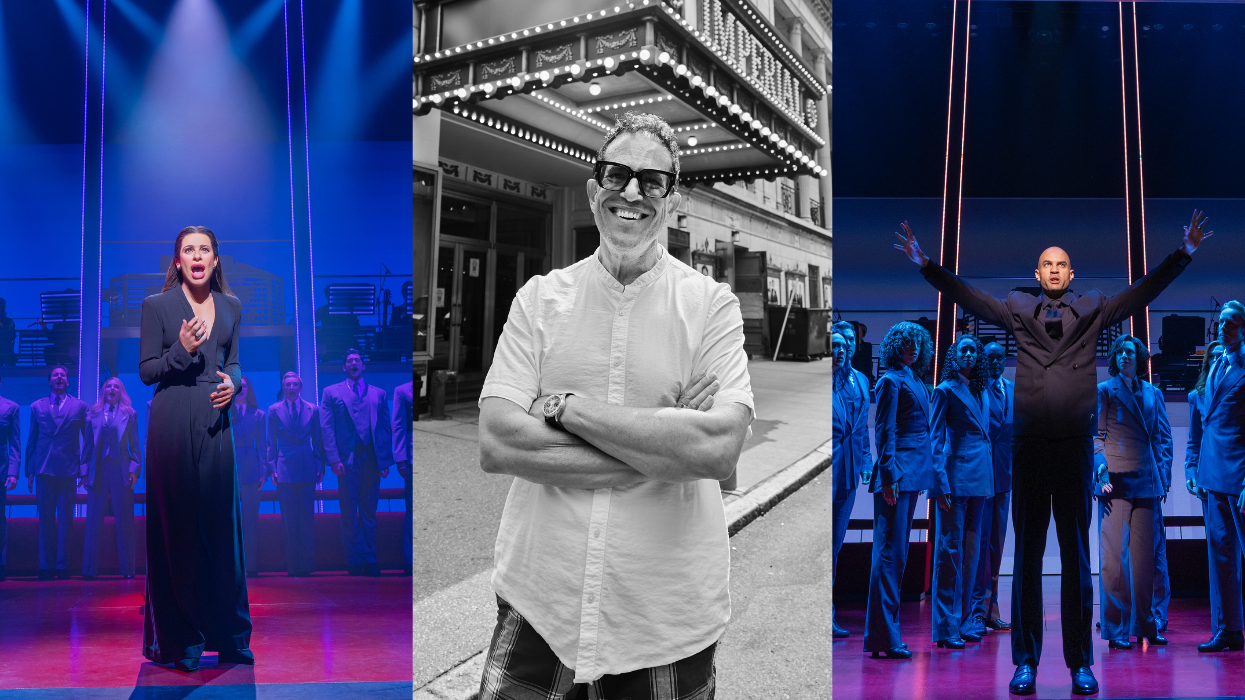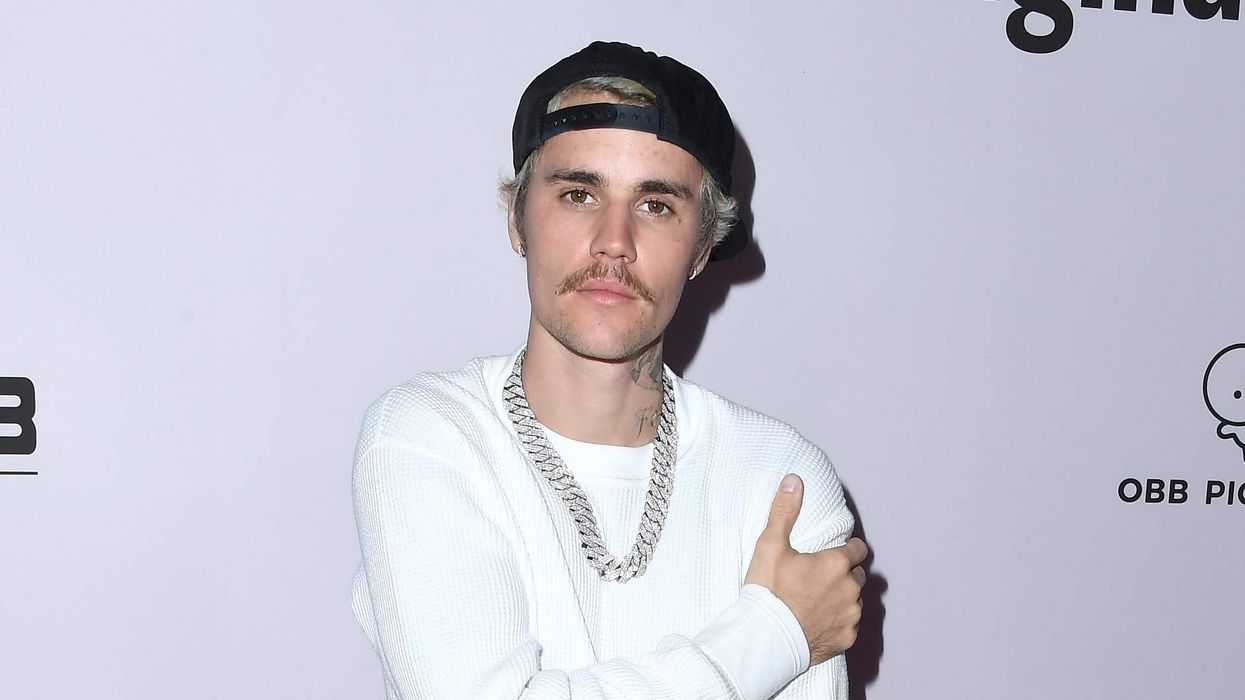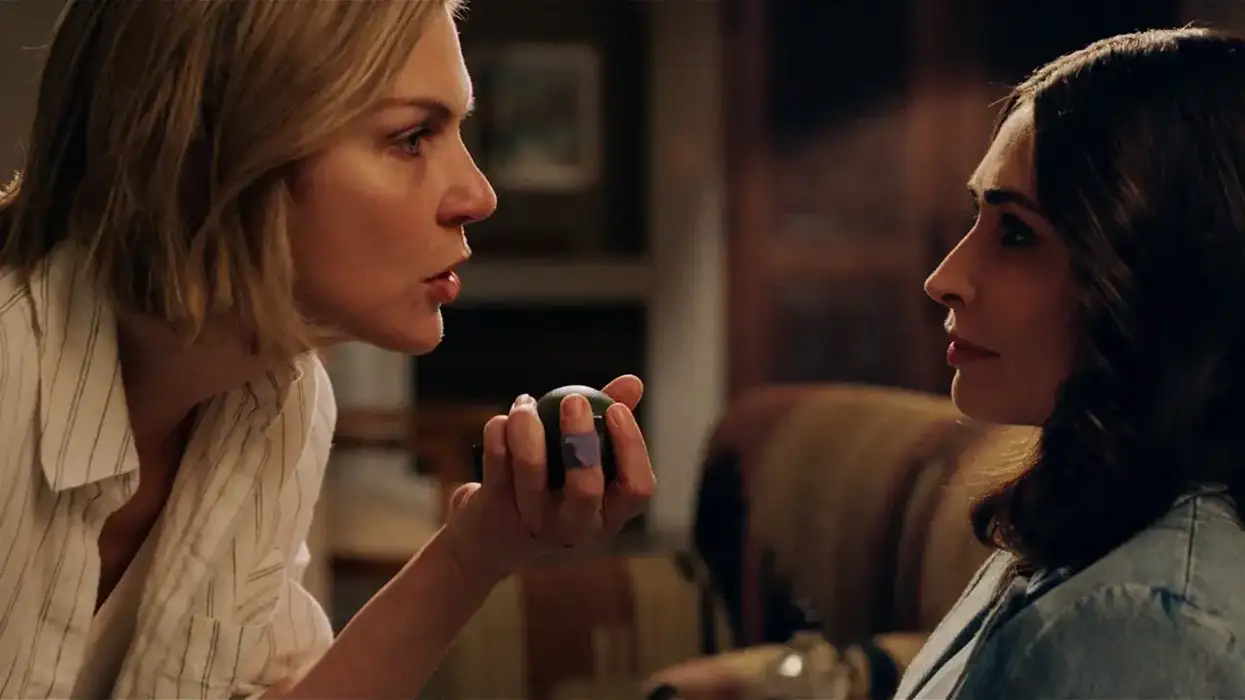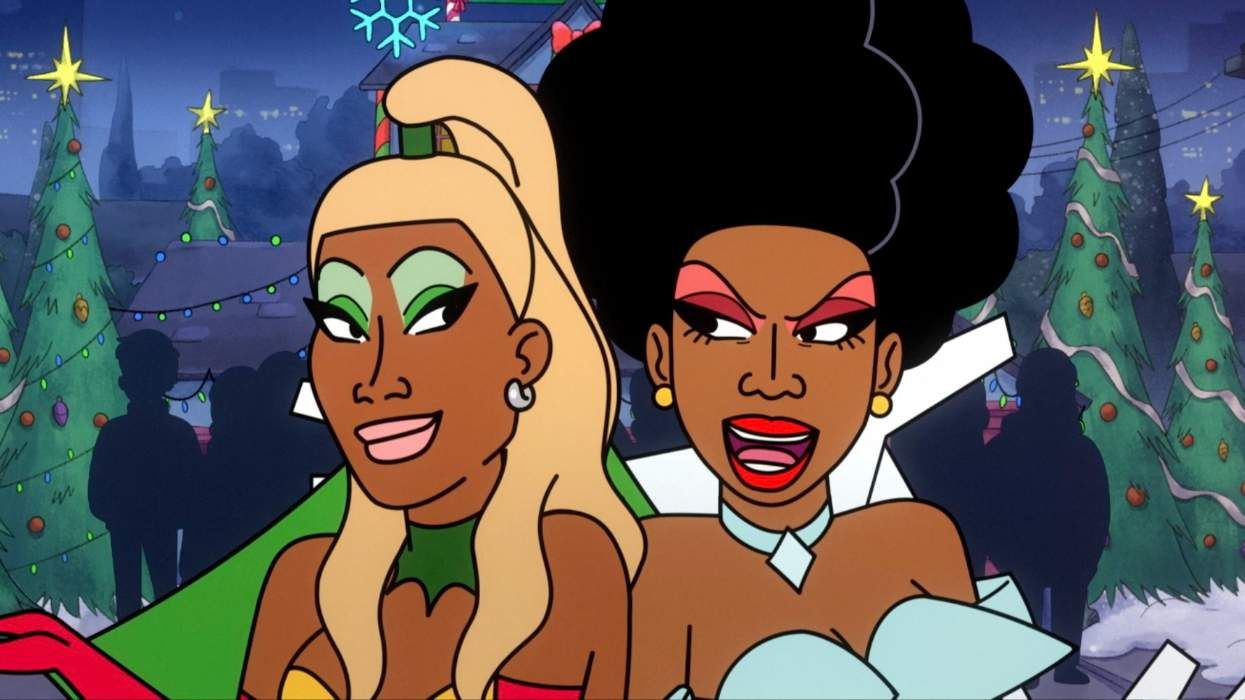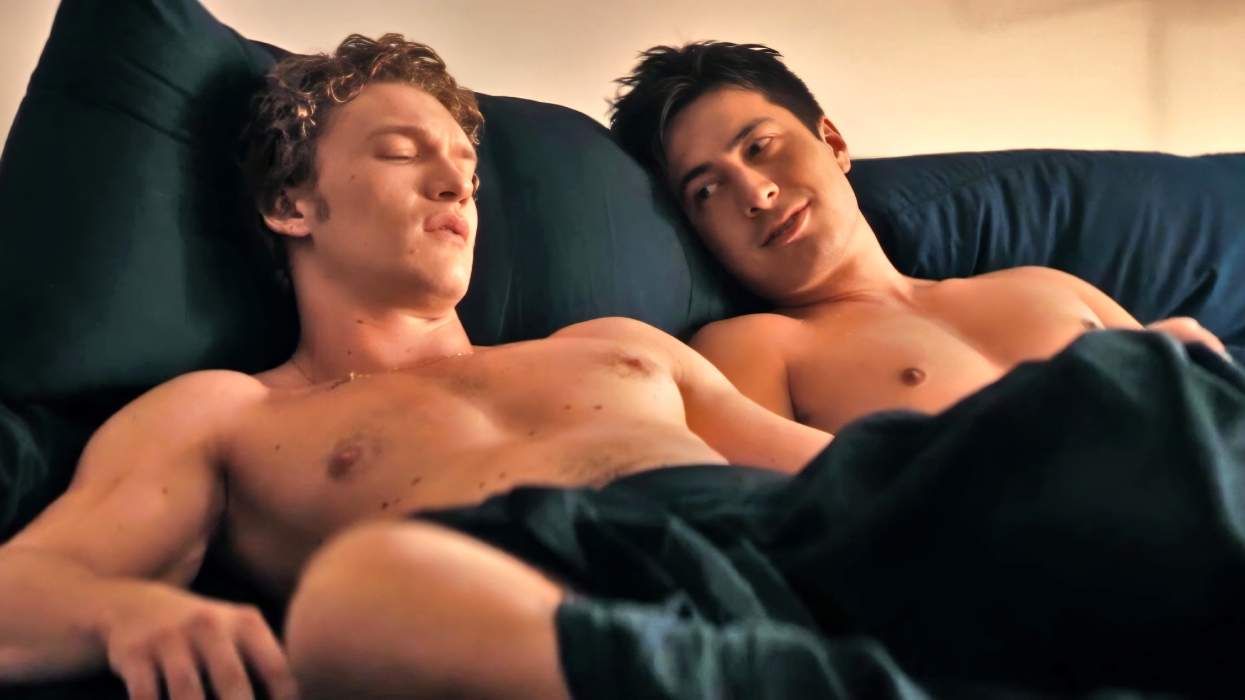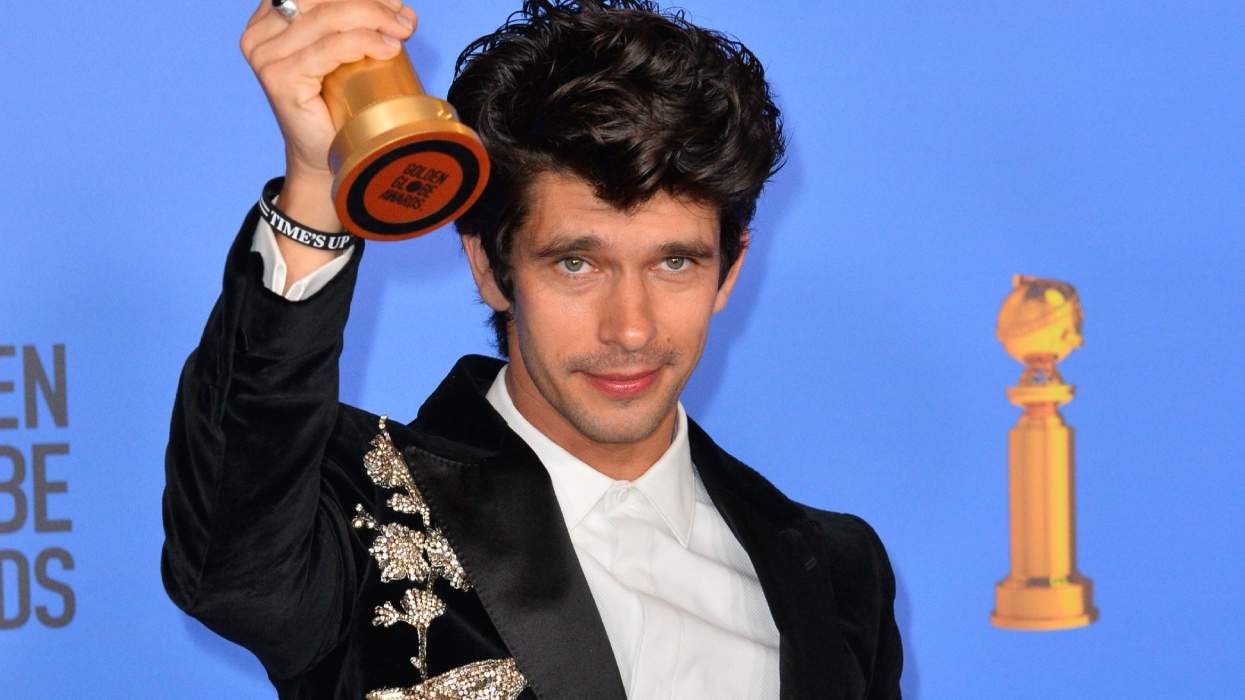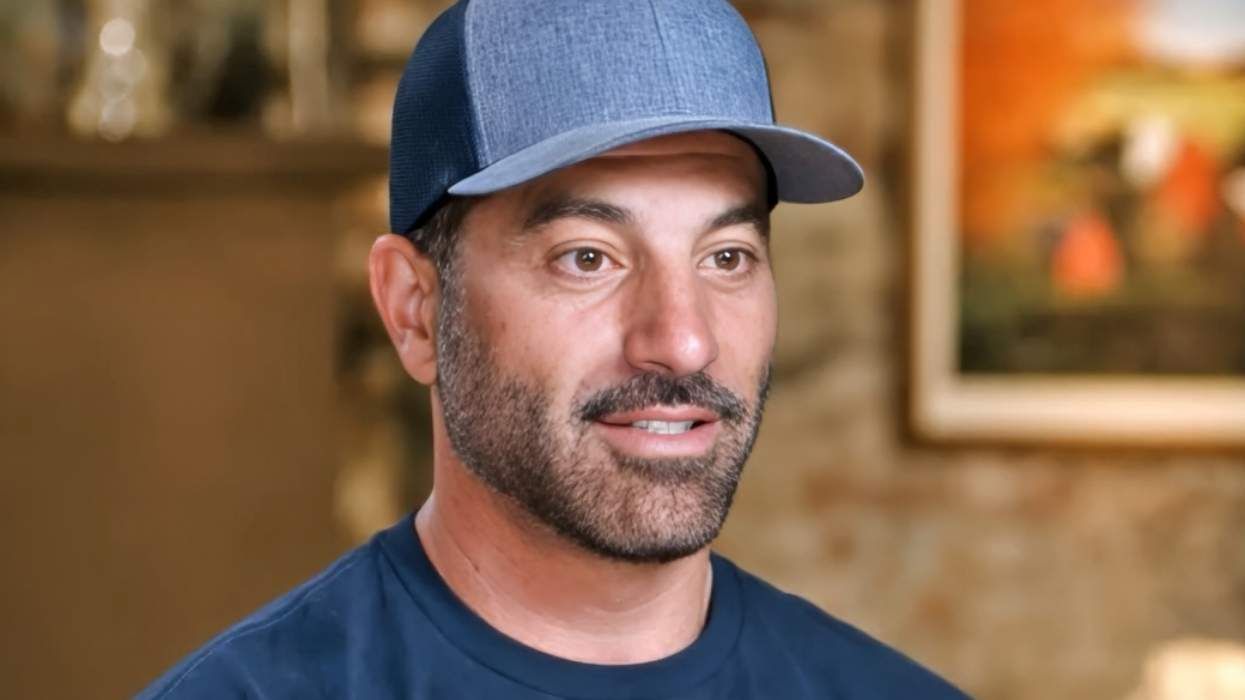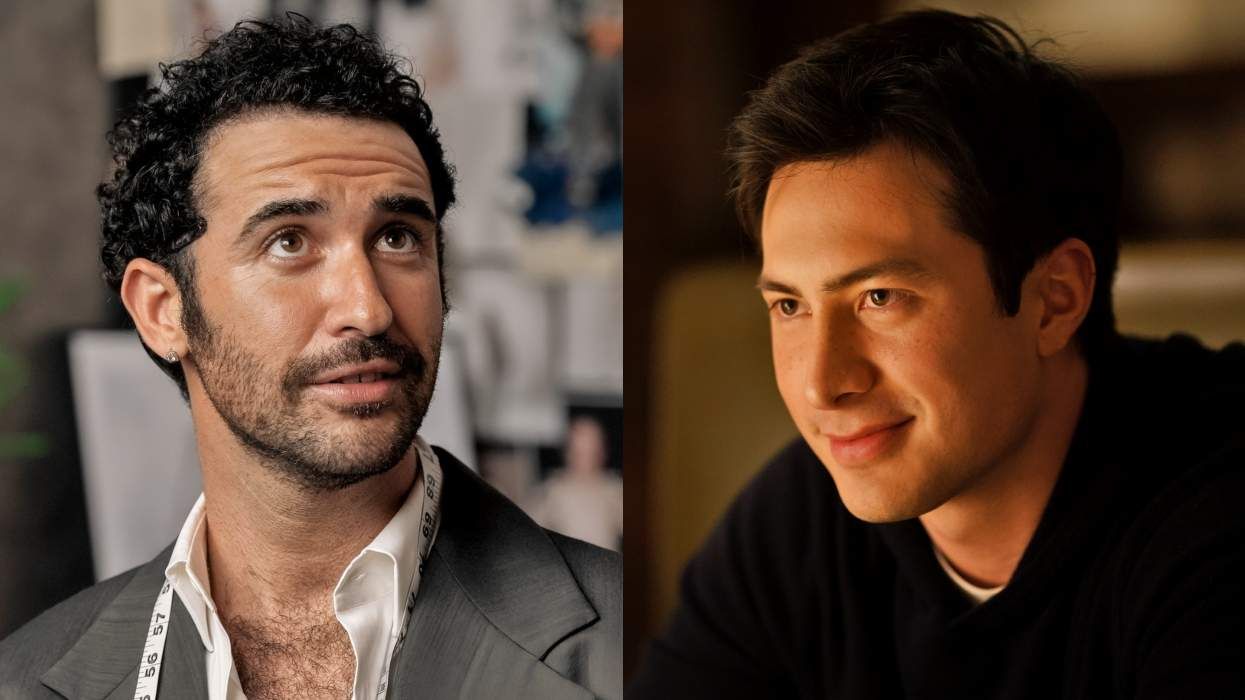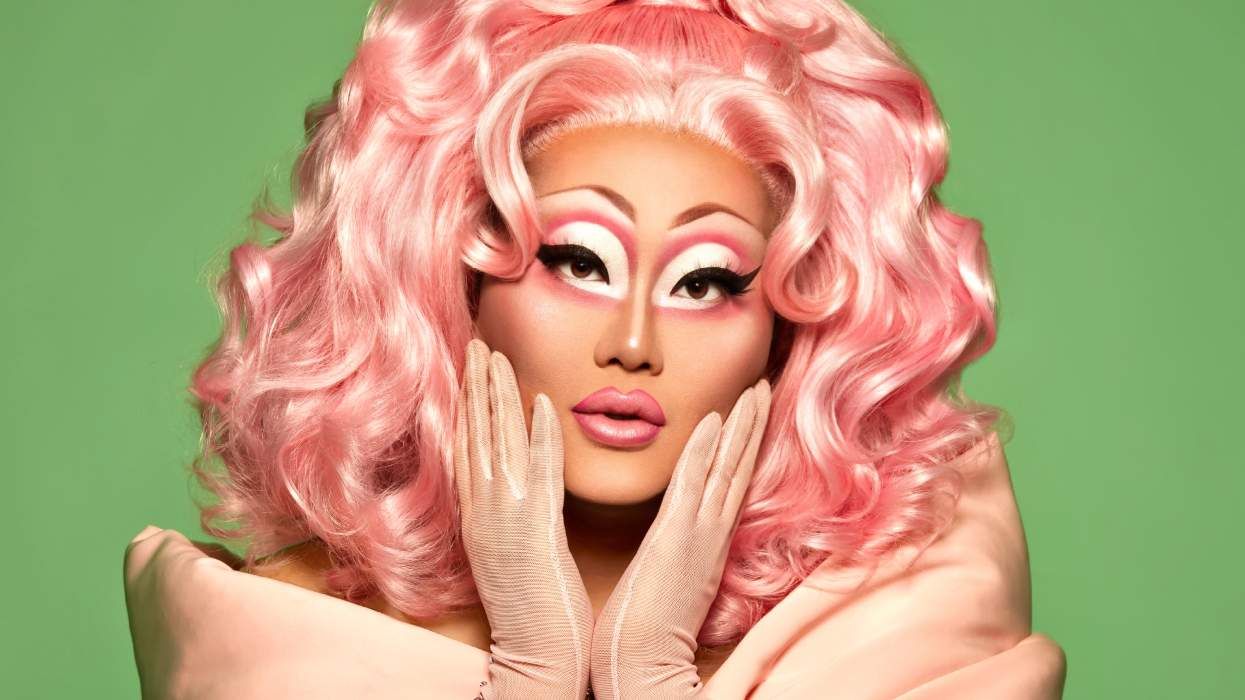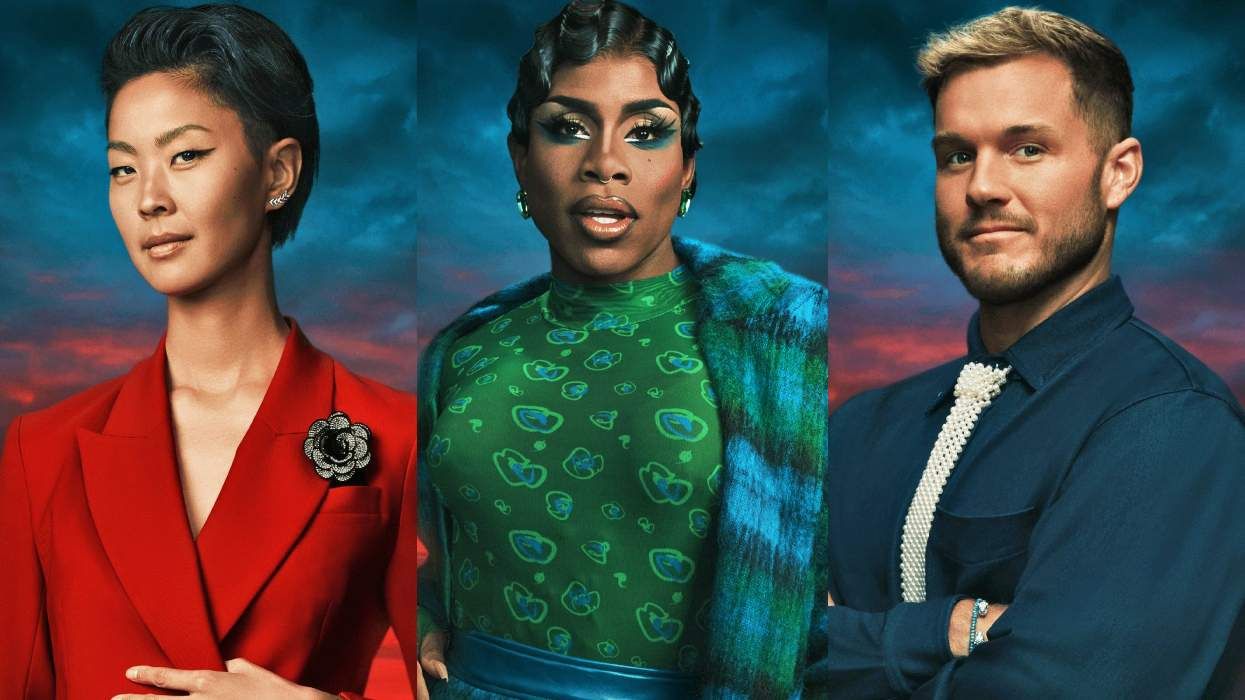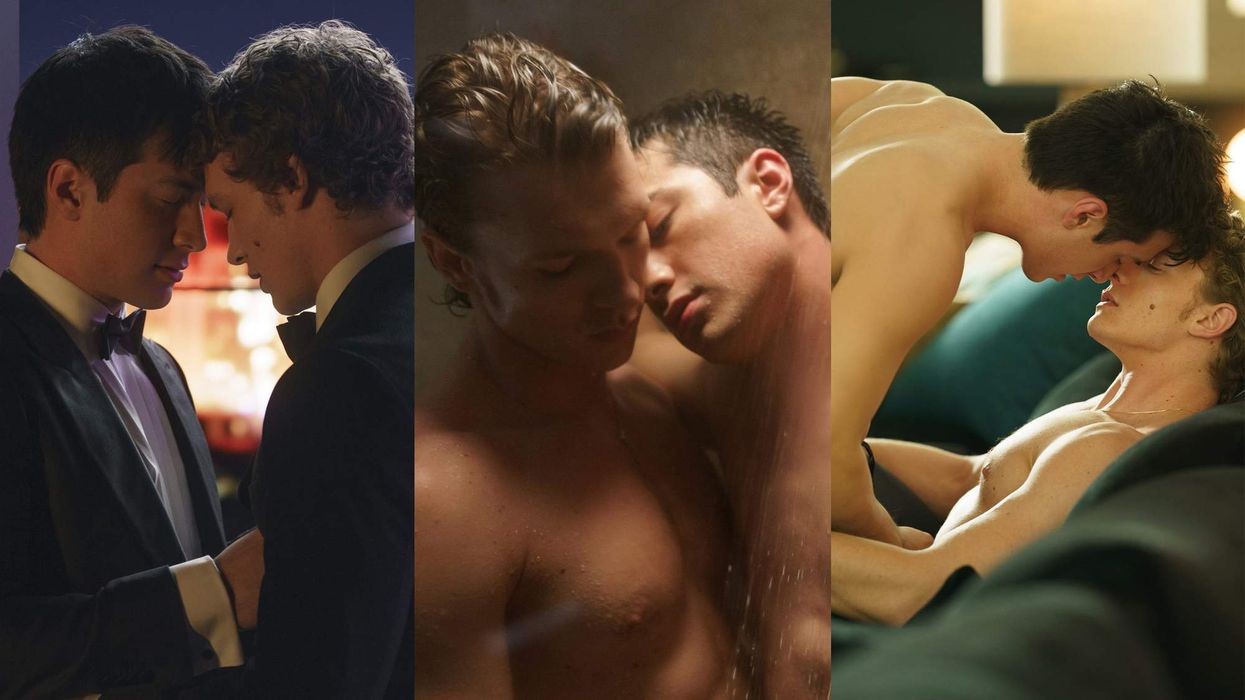Outrage, a new documentary by Academy Award nominated director Kirby Dick, dissects the hypocrisy and irony of closeted politicians who consistently vote and run on extremely anti-gay platforms. It's as much a study of the psychology of internalized homophobia as it is a plea for the general public to start taking notice. If everything goes according to plan, the film -- which very openly outs many allegedly gay politicians -- stands to be the object of much controversy when it is released in select theaters this Friday. Dick sat down with us amidst last week's Tribeca Film Festival frenzy and chatted about what's presently at stake for gay rights and why he hopes his film gets just as much negative response as it does positive.
Out:Have closeted politicians always been an interest of yours?
Kirby Dick: Well, you know, I've followed this -- I mean, not closely, but followed it -- and I'd been very interested in this situation since the early- to mid-90's. When I actually conceived of the film in August 2006, I was in Washington D.C. promoting my previous film, This Film is Not Yet Rated. I thought to myself, I know about that censorship because I'm in the film business. What stories are there inside the beltway, only known there, that I could make a documentary about? I started asking around and this issue came up very quickly.
You certainly picked a loaded issue.
There were three things that really made it worthy of making a documentary about: 1. The profound hypocrisy; 2. The fact that the mainstream media didn't talk about it; and 3. The psychology of these closeted politicians. There's something tragic, almost Shakespearean, about someone who would choose power, but have to live a double life for their entire lives. I thought, Oh my God, I cannot believe a film has not been made on this subject. And I thought, Why didn't I think of this ten years ago? One of the jobs of the documentary filmmaker is to be sensitive as to what's going on and say, 'Ok, there's a documentary going on somewhere.' And I was like, 'Get your shit together, Kirby.'
You criticize mainstream media for turning a blind eye to these stories. Why do you think they have been so reluctant to cover closeted politicians?
I think it's for a number of reasons. To their credit, these politicians are very closeted, so it's hard to get a certain level of information that they're comfortable with. But on the other hand, if it looks like hypocrisy, there's nothing wrong with asking the question: If you're gay or straight, if you're voting on these issues, particularly if you're voting against them. Secondly, one of the reasons they don't is they think they're somehow protecting people's privacy. And maybe they are, but at the expense of a very important issue in this country, and at the expense of millions of people being harmed. And then finally, I think it's an issue of access. The media are able to do their business by maintaining close professional relationships with these politicians. If they were even to ask that question, it would be the last moment they would even have access to that politician. I mean, they should ask it anyway.
Did you have trouble finding the subjects? Like the actual people who talked about having sex with Larry Craig in the 80's?
People are cautious, very cautious. I was amazed at the level of fear and caution. I mean, you think they might only be representatives and you don't think of them as necessarily that powerful. But they're very powerful within that district. The subjects are sometimes people who have lived in that district their whole lives -- theirprofessional and personal relationship are all there and they thought this person can really affect their lives. So I had, on a number of occasions, people start to talk to me, even off the record, and say, 'No, I can't continue.'
These politicians may have power, but at what cost? If they have so much to hide, then why do they choose to go into such public careers?
Well, that's the tragedy of it. I feel a great deal of empathy for these politicians -- certainly less so when they're so extremely hypocritical and voting anti-gay. But I mean, they're victims of homophobia as well. And this is not something that they would choose. I would think nearly everybody would choose to live an out lifestyle. But the problem, the real profound problem, is that they've made the choice to stay in the closet. And one of the ways they protect their closet is by sometimes going overboard and voting even more anti-gay than they have, so that nobody suspects, nobody asks the question.
It's no secret that coming out can be a complex process. Do you think the conservative media is going to have bad reaction to this film? Do you think they'll characterize this as mean-spirited or callous outing?
Oh, I don't know... I'm sort of open to see what will happen. It's very possible they'll not want to report on it at all. What happens is, by reporting on it, they do what I want the film to achieve, which is that this issue gets discussed. And so, I actually welcome any kind of response. This is an issue that should be debated in the mainstream media, and people can have different opinions on it.
Charlie Crist, the Governor of Florida, gets it pretty bad in the film, and he's an up-and-coming Republican politician. What's at stake for him?
Well, I think this is one of the prices you pay for dishonesty with the public -- that eventually something like this will come out. Charlie Crist is a very interesting case. He's very moderate, from all accounts he's a very nice person -- you can even see that in the way he interacts with people and speaks -- and he certainly is not anti-gay, personally. I mean, I don't know that for a fact, but all indications are. But he has made a very calculated choice. He wants to be president -- he was already governor, a very popular governor. He didn't have to support amendment two -- that would not have affected his reelection significantly. But he chose to do that, and you know, it passed by 62 to 38 percent, and what's his legacy now? What's the legacy of his choosing to protect the closet? It's that we have an amendment in place that will take 60% to overturn and that outlaws not only gay marriage, but also civil unions. His legacy of the closet here may be 20 years of damage to hundreds of thousands of Floridians.
What is your take on Proposition 8?
And I think that it's a lesson. I think that the opposition to Proposition 8, the campaign in California -- I mean, everyone agrees -- was not particularly handled well. And the ads in favor of Proposition 8 were quite good. But I think this is a lesson to all of us that this is not a battle that's over by any means. Yes, it's slowly moving in the right direction. But one terrorist attack could change the whole political climate in this country. And a reactionary candidate could come out of nowhere, and certainly there's a good chance that they would use this as one of their ways of galvanizing support. I believe that the gay rights struggle is the most important human rights issue in this country at this time.
Yes, and if it hadn't been for the collapse of the economy, gay marriage still would've been in the cross hairs of the Republican party this past election. That's, in part, why I think the Republican Party wasn't as effective this time around.
In that small way, we were fortunate [laughs]. Well, it's funny that it happened before the election. It was inevitable consequence, I believe, of the George W. Bush years. We are fortunate that it didn't happen three months later.
Is it possible for any Republican politicians to be openly gay and successful without being in the closet first?
It's a challenge and I think it's sort of district-by-district. People were asking the same question about Obama -- can an African American win the presidency? I'm hopeful that very soon there will be a gay Republican in a national office. I think that will really start to change at least this whole attitude within the Republican caucus. It's a lot easier to demonize gays and lesbians when you don't believe there are any gays or lesbians in the caucus. Now of course they know -- they know there are a number of them, even some that aren't in my film. That's really not that much of a secret. But if somebody's out and willing to say, 'Look, this personally offends me. You're my colleague and you're asking the party to support a position that takes a human right away from me,' it's going to make it much harder.
And then there's the Republican buzzword, the 'gay lifestyle,' that hints at some seedy counterculture. But nowhere are these false characterizations truer than, say, when certain closeted politicians decide to troll for sex in airport bathrooms.
There's an incredible irony there. But on the other hand, there's nothing illegal about what Larry Craig did. If people choose to do that, it might be somewhat unseemly, but I supposed it's their choice. With Larry Craig, my guess is that that was not his first choice as a way to have sex. But maybe he thought it was the safest way because he's not easily recognized as a national political figure -- and so he's just a man in a bathroom. See, this is one of the tragedies. He is probably very afraid of developing any kind of intimate relationship with somebody because that person at one point or another can come forward. In the bathroom, there are the sorts of people that won't recognize him and never will. And he almost got away with it.
Almost, but not quite.
I think he was very calculating. He made the calculation that if he pled innocent, there'd be a trial. And as soon as the trial begins, that's when the press can come in and report about it. He knew that there was a lot of discussion about this in Idaho. Dan Popkey of the Idaho Statesman would've reported on this, then the mainstream media would've come in. So from his prospective, he had to plead guilty and hope that it would work out -- it almost did. And again, I personally don't think he should've resigned because of that -- he didn't do anything wrong. That's not the issue here. This issue isn't whether he is having sex in a bathroom -- the issue is the decades of hypocrisy coming from him.
So what effect do you hope this documentary will have?
Well, the important effect is that it advances the cause of the gay rights struggle. As I said, we're at a critical time, particularly with the recent propositions and amendments that have been passed. I hope that it contributes to this ongoing struggle. Secondly, I hope that by focusing on this issue of hypocrisy that finally the mainstream media will come in and discuss this. And I hope the result of that discussion will be that gays and lesbians -- going early on in their careers, going into politics, even before their elected -- make the decision to leave the closet. And my great hope is that in 20 years, the closet as an issue in American politics will be much less important than it is now.
Well, this documentary certainly attacks the issue at its root.
The other thing I'd like to say is that this is something the gay press has been writing about for the past 20 years, and has been just struggling to get the mainstream media to cover. What I've done here is really stand on the shoulders of these thinkers. This is something that the 50 people I sat down with had thought about for decades, had been impacted by the anti-gay hysteria, had seen the damage of the closet close up, had been in the closet themselves. And they'd all gone through a meditation and reflection on this. So just coming new to this, the pleasure was getting this insight time-and-time again from these interview subjects that allowed me to really present the complexity of this issue.
Outrage opens in selected theaters on Friday, May 8.


